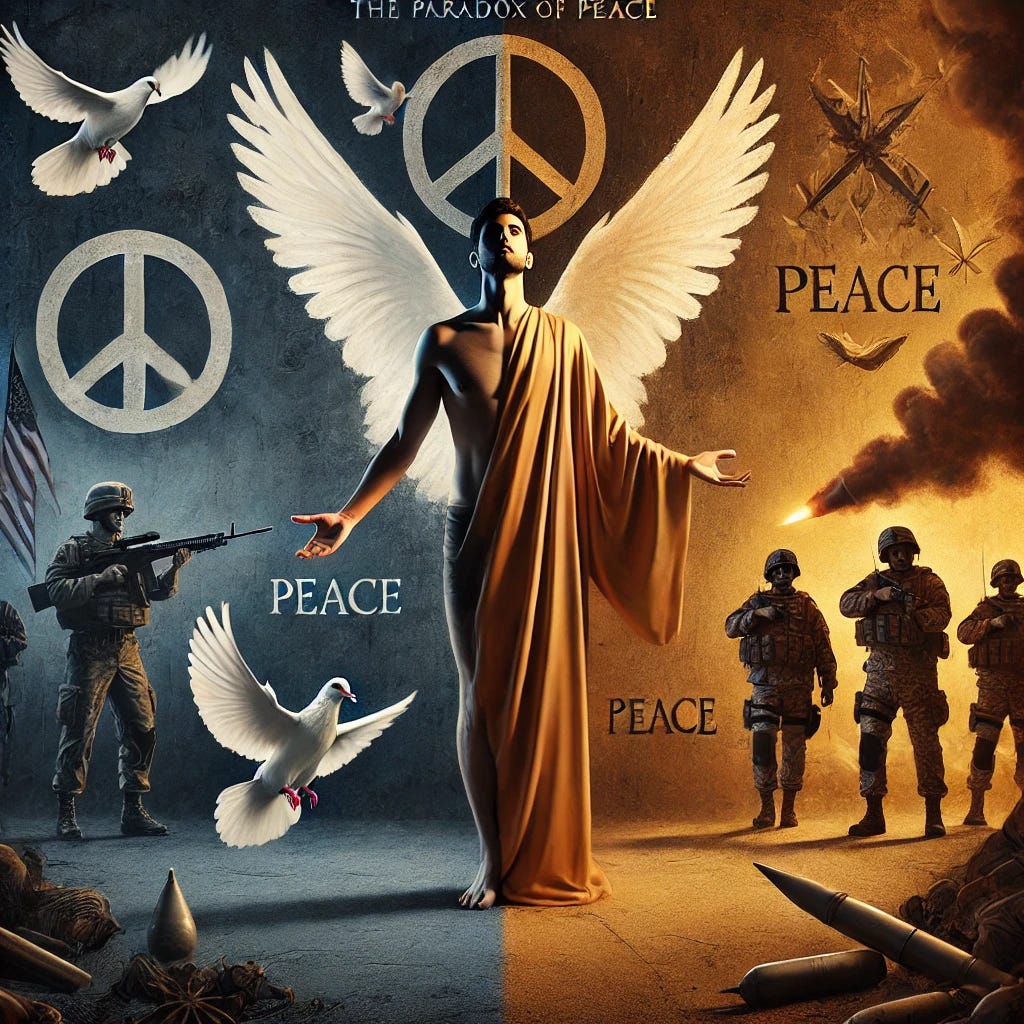Before we dive in:
This is the first in a three-part series exploring something that’s been sitting heavy in my spirit: How can a person committed to nonviolence even consider supporting an arms deal? I’ve spent a lifetime walking the peace path. But the world—and the war in Ukraine—is forcing a deeper question.
When Nonviolence Gets Real
Nonviolence is beautiful in theory. It’s powerful in practice. But it’s also incredibly uncomfortable when reality comes knocking.
Put plainly: Ukraine is under siege. People are dying. Civilians. Children. And the invader isn’t coming to the table. They’re coming with tanks. So what do we do?
Sit back? Send love and prayers while cities are flattened?
That’s not peace. That’s abdication. And I say that with a full heart.
The idea that nonviolence always means "no action" or "no force" is a misunderstanding. Nonviolence, in its most courageous form, is active resistance—not avoidance. Dr. Martin Luther King Jr. knew this. Gandhi knew it too, even if he didn’t always want to.
They taught us that love, real love, sometimes requires confrontation. Not hatred. Not aggression. But strength. Boundaries. Action rooted in justice.
Ukraine has been under a brutal, ongoing assault by Russia. This isn't about partisan politics. It's about humanity. And the longer we pretend that peace means passivity, the more complicit we become in violence disguised as neutrality.
Violence vs. Defense: Yes, There’s a Difference
Let’s get something straight: there is a moral difference between initiating harm and preventing it.
We have to stop lumping all conflict into one ethical basket. Defensive aid is not the same as military aggression. Handing Ukraine the tools to protect itself from invasion is not the same as encouraging war. It’s about restoring balance. Giving the vulnerable a fighting chance.
If someone breaks into your house, you don’t sit in the living room affirming abundance while your family is attacked. You respond. You protect. You act from love—not fear—but with full force if needed to stop harm.
Yes, we affirm the power of love, the unity of all life. But if love doesn’t show up to stop injustice, then what exactly is it doing?
This Isn’t Easy. That’s Why It Matters.
Do I want to see a world where no one needs weapons? Of course. That vision is part of the dream I hold in my heart every day.
But I also live in the real world. And in this world, people are being targeted, bombed, raped, and erased. Choosing to ignore that because it makes us uncomfortable is not nonviolence. It's privilege. It's detachment.
Supporting Ukraine’s right to defend itself—even through a weapons purchase—isn’t abandoning peace. It’s acknowledging that peace sometimes comes in imperfect packaging.
This is spiritual maturity: holding paradox without collapsing into either naivety or despair.
Next up: In the second article, I’ll take you inside my personal conflict. What does it mean to be a New Thought Minister—a spiritual leader—grappling with this choice? This isn’t just theoretical. It’s intimate. It’s messy. And it’s next.







Thank you for sharing this wise perspective that reminds us of the real-life application of New Thought principles and what inspired action really means.
“the longer we pretend that peace means passivity, the more complicit we become in violence disguised as neutrality”. Wow that shook me alright!